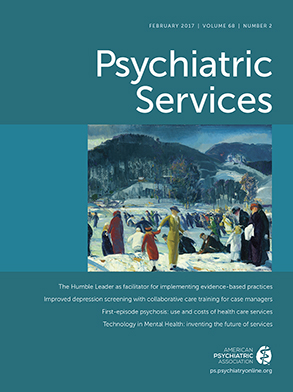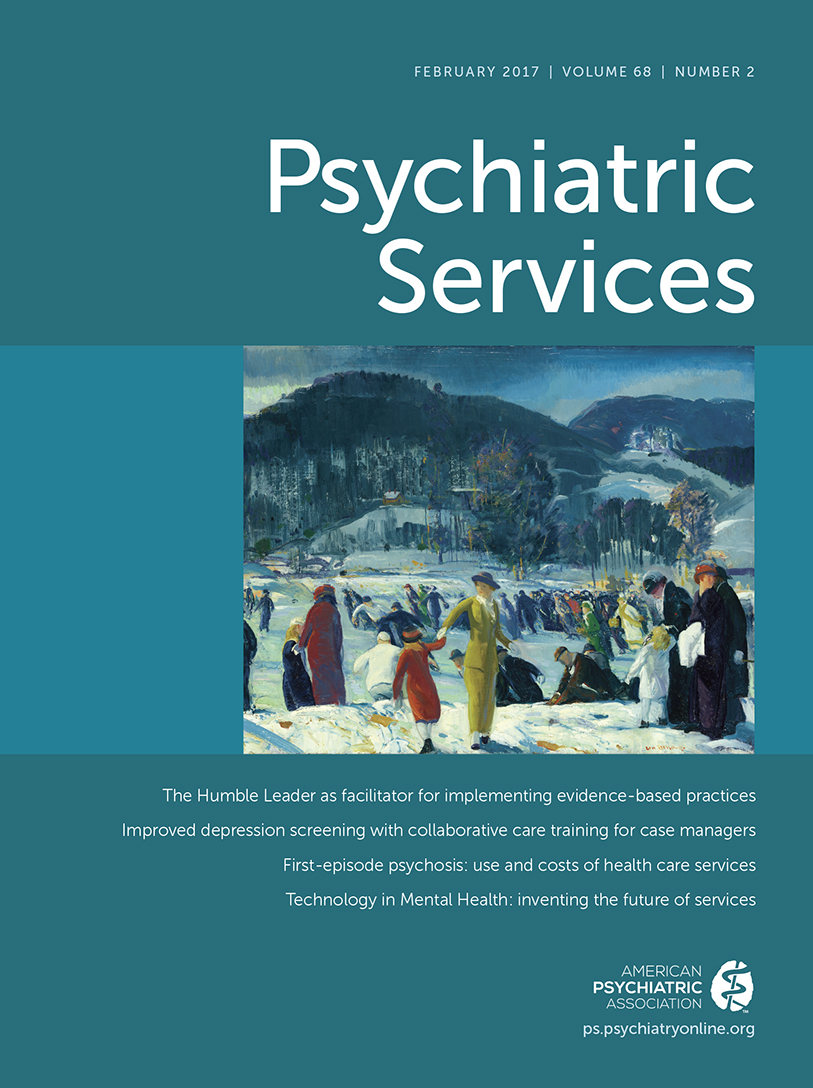Effective collaboration between law enforcement and crisis systems can improve outcomes for people with mental illness and for public safety. For example, the Memphis Model of crisis intervention training (CIT) enhances police officers’ skills for safely deescalating crises. However, such programs focus on emergency response. After the 2011 shooting of U.S. Representative Gabrielle Giffords, the Tucson law enforcement community sought to develop a more upstream, proactive approach.
The Tucson Police Department (TPD) and Pima County Sheriff’s Office (PCSO) enhanced their CIT programs by introducing the Mental Health Investigative Support Team (MHIST), which aims for crisis prevention through early identification and engagement. MHIST’s support/transport component focuses on individuals in the civil commitment system, and the investigative component aims to identify at-risk individuals among low-level “nuisance” cases. Both components seek to link individuals to services before a situation escalates to a crisis.
Core Components
MHIST plays an important role in the civil commitment system. Arizona statute requires law enforcement to transport individuals to a treatment facility when assisted outpatient treatment is revoked (such as for missed appointments) or an application for evaluation is filed with the court. These transport orders are assigned to a dedicated team of MHIST officers and deputies. Centralized tracking allows the most acutely ill individuals to be prioritized for location and transport. The team facilitates development of rapport with frequently served individuals. Team members wear plain clothes and drive unmarked cars to avoid the stigma and potential for behavioral escalation that can result from the sight of uniformed officers.
The investigation component focuses on connecting individuals to behavioral health services before the situation escalates into a crisis or criminal court involvement. Cases are flagged for review with specific “mental health circumstance” codes or individual officer referral. MHIST detectives focus on two types of cases: noncriminal, “nuisance” cases that would not normally be investigated but may, if analyzed for patterns, indicate a mental health need and cases with a potential criminal component or threat to public safety. If mental health needs are identified, detectives collaborate with potential supports in the community. MHIST detectives work with both the mental health and criminal justice systems to facilitate an outcome that meets the needs of the individual and addresses public safety concerns. Justice-system diversion is pursued whenever possible.
Behavioral Health System Partnerships
As a non–HIPAA-covered entity, MHIST focuses on sharing information with health providers rather than receiving it, conveying information such as living conditions, neighborhood issues, firearm access, 911 calls, and so on. Initial barriers resulting from privacy concerns and mistrust were overcome as MHIST convinced providers of the team’s intent to facilitate connection to treatment and prevent arrest whenever possible. Some patients have developed strong rapport with MHIST team members and have signed consent to participate in treatment team meetings.
In addition, key components of the crisis continuum have implemented processes designed to facilitate working partnerships with law enforcement. The Crisis Response Center (CRC) serves as the central receiving facility for law enforcement to ease bringing an individual to treatment rather than jail. Half of the 12,000 individuals receiving care at the CRC each year arrive via law enforcement referral. Officers are never turned away, and their median turnaround time is under ten minutes. MHIST communicates information to CRC psychiatrists, who must decide within 24 hours whether to discharge or admit individuals to a higher level of care.
Eleven crisis mobile teams (CMTs) are available to collaborate with MHIST in assessment, stabilization, connection to services, and welfare and follow-up checks. A dedicated law enforcement line ensures rapid access and connects directly to a supervisor. The behavioral health authority requires that CMTs arrive on scene within 30 minutes for law enforcement–initiated dispatches.
Outcomes
In 2015, TPD served 308 civil commitment transport orders, and PCSO served 176, all without a single use of force. TPD SWAT deployments for “suicidal barricaded subject” decreased from 14 per year 2012–2013 to three per year 2014–2015, at a cost savings of $10,000 per incident. Both teams have case examples of threats to public safety (such as planned mass casualty events at a church or place of employment) that were averted without use of force or criminal court involvement.
The Tucson MHIST model adds to the continuum of solutions available for law enforcement to address the behavioral health needs of the community it serves and suggests that earlier intervention mitigates adverse outcomes of behavioral health crises, including use of force, criminal justice involvement, and threats to public safety.

